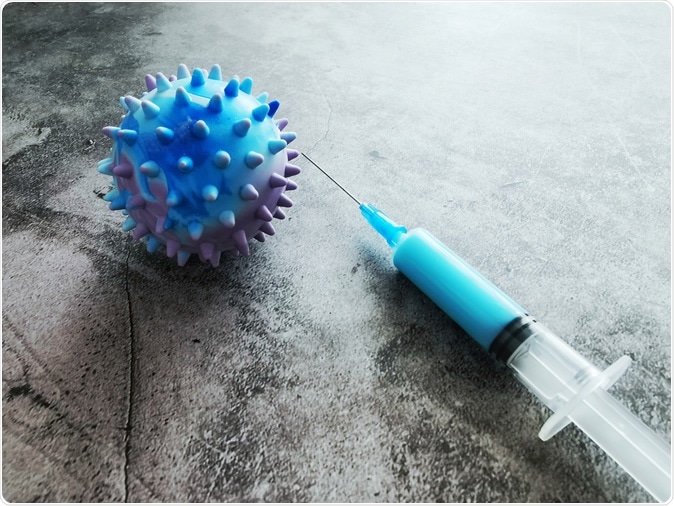Amid the coronavirus disease (COVID-19) pandemic that is rapidly spreading worldwide, scientists are becoming more concerned that rushing vaccine production to prevent the infection may do more harm than good to patients.
Currently, drugmakers and scientists are working as fast as possible to develop a vaccine to combat the coronavirus pandemic, which has infected more than 126,000 in 114 countries, and taken more than 4,600 lives.
Health experts say that coronavirus vaccines may pose a risk for 'vaccine enhancement,' a condition where instead of protecting the body against infection, it makes the disease worse when the vaccinated person contracts the virus. There are many vaccines developed in the past that have developed vaccine enhancement.

Image Credit: Drasa / Shutterstock
How long does it take to develop a vaccine?
Usually, researchers require months to test upcoming vaccines. It may take about 18 months before a vaccine is ready for mass immunization. Drugs advance through stages, including safety testing, and efficacy tests. Rushing through a vaccine now may mean there is limited time to test its safety and effectiveness.
Further, researchers may need months to test for the potential of vaccine enhancement in animals. Due to the urgency of the global health crisis and the rapid spread of the sudden acute respiratory syndrome coronavirus 2 (SARS-CoV-2), some pharmaceutical companies are now moving straight into small-scale human tests, without performing animal tests for safety.
"I understand the importance of accelerating timelines for vaccines in general, but from everything I know, this is not the vaccine to be doing it with," Dr. Peter Hotez, dean of the National School of Tropical Medicine at Baylor College of Medicine, said.
Hotez has worked on developing a vaccine for Sudden Acute Respiratory Syndrome (SARS), which caused the 2003 SARS outbreak in China and other countries. During the development, he found that, during animal testing, some vaccinated animals developed a more severe disease when exposed to the virus.
"There is a risk of immune enhancement. The way you reduce that risk is first you show it does not occur in laboratory animals," he added.
What is vaccine enhancement?
Vaccine enhancement or antibody-dependent enhancement is a result of a vaccination, wherein instead of protecting a vaccinated people from the infection, it causes severe disease when they contract the pathogen.
For some members of different virus families, vaccine enhancement can happen. Instead of protecting the person from infection, it may cause more harm. It is essential that in developing vaccines, testing should be performed on animal models to determine the risks involved.
Vaccine development efforts
Vaccine manufacturers are 'under the thumb' due to the rapid spread of the virus, and affected countries are crying out for a way to prevent infections. However, developing a vaccine that is safe and effective is crucial.
Many companies have announced progress in vaccine development. Some of them use genetics-based vaccines, which are now with health agencies for evaluation. The approval process involved with vaccines is costly and tedious, and more demanding than for most other drugs in the market.
In most cases, though samples pass clinical tests, the production of a vaccine to be used by the public may take about 12 to 18 months, at least. Vaccines are given to healthy people for protection against a pathogen, whether it's a bacterium or a virus. The vaccine should not make healthy people sick; hence, preventive vaccines do not cure illness but rather, boost the immune system to combat the infection.
Global numbers
The total number of cases has reached 126,254, and the death toll surpassed 4,600. Outside of China, Italy has the highest number of confirmed cases, with 12,462 patients down with the illness and 827 deaths. Iran has 9,000 confirmed cases and 354 deaths. China has the highest number of infections, topping 80,000, while more than 62,000 people have already recovered.
South Korea was the country with the highest number of infections next to China two weeks ago, but it had only 66 deaths, thanks to effective containment efforts. The country has so far had 7,869 cases, while 333 have already recovered.
Where Did Viruses Come From?
Where Did Viruses Come From?